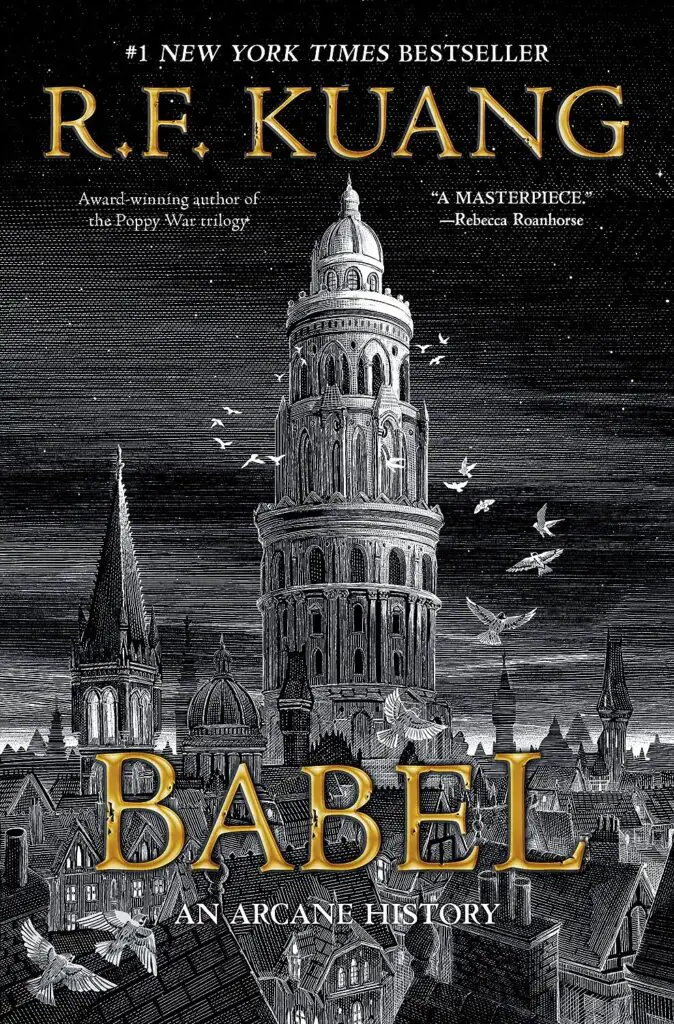Babel by R. F. Kuang In-Depth Summary
Main Topic or Theme of the Book
Babel delves into a rich tapestry of war, politics, and power dynamics within a fantastical world heavily influenced by Chinese history, presenting a nuanced exploration of leadership and morality in times of conflict.
Key Ideas or Arguments Presented
1. War and its Toll
- Kuang vividly depicts the brutal realities of war, portraying the physical and psychological toll it takes on individuals and societies.
- Through visceral and intense scenes, the author explores the ethical challenges faced by characters navigating the chaos of battle.
2. Power Dynamics
- The narrative intricately examines the complexities of power, portraying leaders who grapple with tough decisions and the personal sacrifices demanded by authority.
- Kuang skillfully weaves a narrative that highlights the fragility and volatility of power structures in times of war and political upheaval.
3. Cultural Influences
- Rooted in Chinese history and mythology, the book incorporates cultural nuances, providing readers with a unique perspective on political and military strategies.
- The integration of historical parallels adds depth to the narrative, prompting reflection on the relevance of the fictional world to real-world historical events.
Chapter Titles or Main Sections of the Book
While specific chapter titles may vary, the book unfolds through several sections, each capturing different phases of the characters’ journeys, from their training and initiation to the intricate complexities of warfare and political maneuvering.
Key Takeaways or Conclusions
1. Moral Ambiguity
- Babel challenges traditional notions of right and wrong, emphasizing the moral ambiguity inherent in decisions made during times of conflict.
- Characters grapple with the consequences of their actions, and the narrative invites readers to question established ethical frameworks.
2. Character Development
- The novel excels in character development, tracing the growth and transformation of key figures amidst the chaos of war.
- Readers witness the evolution of characters as they navigate challenges, make difficult choices, and confront the internal conflicts arising from their roles in the larger narrative.
3. Cultural Reflections
- Kuang’s background in Chinese history enriches the narrative with cultural authenticity, encouraging readers to draw parallels between the fictional world and historical events.
- The incorporation of cultural elements adds layers of complexity to the storytelling, enhancing the immersive experience for the audience.
Author’s Background and Qualifications
Rebecca F. Kuang, with her academic background in Chinese history, brings a unique and informed perspective to the narrative, contributing to the authenticity and depth of the world she creates.
Comparison to Other Books on the Same Subject
Babel distinguishes itself through its fusion of historical inspiration and fantasy elements, setting it apart from conventional war-themed novels. Its cultural richness serves as a unique selling point, differentiating it from other works in the genre.
Target Audience or Intended Readership
Babel appeals to readers of fantasy literature with an interest in multifaceted portrayals of war, political intrigue, and character-driven narratives. Additionally, individuals fascinated by Chinese history will find the cultural elements woven into the story captivating.
Reception or Critical Response to the Book
Critical acclaim surrounds Babel for its compelling storytelling, well-developed characters, and its exploration of challenging themes. Critics laud Kuang’s ability to create an immersive world and tackle complex power dynamics with depth and nuance.
Recommendations (Other Similar Books on the Same Topic)
- “The Poppy War” (by R. F. Kuang): As the first book in the series, it provides essential background and context for readers delving into Babel.
- “The Grace of Kings” (by Ken Liu): Explores political intrigue and warfare within a fantasy setting, appealing to those who enjoy intricate world-building and examination of power dynamics.
The Book from Perspective of Mothers
- While the story primarily revolves around the protagonist, Rin, and her quest for vengeance and redemption, there are elements that resonate with the experiences of mothers.
- The central theme of sacrifice and the lengths a mother will go to protect her child is a recurring motif throughout the novel. Rin’s relationship with her own mother, although not extensively explored, serves as a reminder of the deep maternal bonds that shape our characters and decisions.
- As Rin grapples with her own desires for power and revenge, she is forced to confront the consequences of her actions on those she loves, including her unborn child. The novel explores the complexities of motherhood, highlighting the challenges of balancing personal ambitions with familial responsibilities.
- Symbolism and metaphors, such as the dragon as a representation of both destruction and renewal, offer mothers insight into the duality of parenthood. The struggles and sacrifices Rin faces as a mother-to-be reflect the universal experiences of mothers who must navigate the complexities of protecting and nurturing their children in a world filled with danger and uncertainty.
- Mothers can draw lessons from “Babel” about the importance of selflessness and empathy in parenting. Rin’s journey serves as a cautionary tale about the dangers of pursuing power at the expense of familial bonds, while also highlighting the transformative power of love and sacrifice.
- Overall, “Babel” offers mothers a compelling exploration of the complexities of motherhood within the context of a fantastical world filled with gods and magic. Through Rin’s story, mothers can gain insights into the joys and challenges of parenthood, as well as the enduring strength of maternal love and sacrifice.
To Sum Up
Babel, with its exploration of war, power, and cultural influences, delivers a gripping narrative that challenges conventional morality. The book’s unique blend of fantasy and historical inspiration, coupled with its rich character development, offers readers a thought-provoking journey through a world shaped by the echoes of Chinese history.
